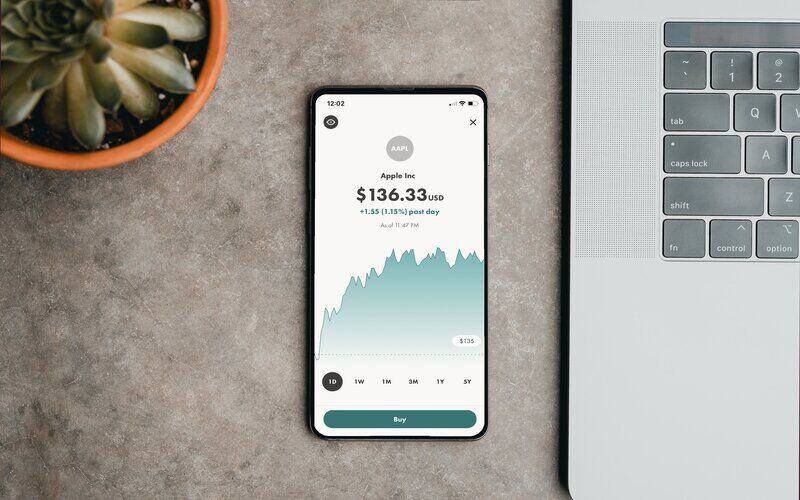If you’re ready to take your business to the next level, congratulations! Before you start turning your dreams into a reality, you’ll need cash to spend on your business.
It might seem scary or stressful to apply for a business loan, but you’re not alone. According to a 2016 report from the Australian Bankers' Association, about half of small businesses have a business loan facility other than a credit card. In 2021, the total value of fixed term loans written to small businesses amounted to more than $36 billion according to ABS figures.
Whether you’re an entrepreneur who dreams of being the next Elon Musk, or your cafe is taking off and you’re ready to expand - a business loan could come in handy. But just like any other type of loan, there are steps you’ll need to take to successfully bag a business loan.
A guide to getting a business loan
Before you can start buying supplies or hiring new employees, you’ll need to secure your funds. Let’s go over the eight steps you should take before applying for a business loan.
1. Figure out your finances
Before you figure out how much you need to borrow, figure out your current financial situation, and from there, you can determine how much you are going to need for your business venture.
It’s important to understand things like your current income, net profit, expenses and any future projections before you apply for a business loan. A good way to get this snapshot of information is by preparing a cashflow statement, according to business.gov.au.
You should also understand exactly what you’re taking out the loan for. According to CommBank, some of the most common reasons for taking out business loans include: managing cashflow, funding growth, or buying a vehicle/equipment for the business.
Whatever your reason, you’re going to be asked on your application. So it’s important to figure all of this out before hit ‘apply’.
You may also need to take a look at your own personal finances. Most lenders will check your credit score and ask for business activity statements (BAS), which is an indication of your reliability as a borrower. Make sure you check your credit report to find your credit score, so you know what options you may have.
2. Determine how much you need to borrow
From here, you should figure out exactly how much you need to apply for. Calculate your costs of your endeavour, which should be pretty easy depending on what you’re planning on doing. In the same breath, only apply for what you can afford. When assessing your application, your lender will do its due diligence to make sure you can afford your monthly repayments, which you can do too. There are plenty of online repayment calculator tools you can use to work out whether the amount you’re applying for is going to be manageable.
3. What kind of business loan do you want? Secured vs unsecured
Before you start researching your options (step five), it might be helpful to first figure out what kind of loan you’re going to apply for: a secured or unsecured business loan. Secured loans require an asset as security while unsecured loans don’t.
With an asset attached, secured loans often come with lower interest rates, but you’d need an asset to offer up as collateral. But they come with an added layer of risk as if you were unable to make your repayments, the lender could repossess your business asset. As a trade-off, secured loans often come with much lower interest rates.
4. Choose between a fixed or variable interest rate
Another way to narrow down your search criteria is the interest rate you want for your loan. In a nutshell, a fixed interest rate is ‘fixed’, and doesn’t go up or down for a set period of time. Depending on the life of your loan, it may be fixed for the entire time. This can be helpful for certainty and cashflow purposes, as you’ll know exactly how much you’ll be paying each month.
On the other hand, variable rate loans typically fluctuate in line with the market. Meaning if interest rates are going up, it will likely go up. But if interest rates are falling, your lender might cut your interest rate. Variable rate loans can sometimes come with other attractive features, like a redraw facility or unlimited extra repayments to help you pay off your loan faster.
5. Research lenders
Now that you’ve gotten the basic stuff down pat, it’s time to find yourself the best fit for your business. Do some research into different lenders, their products and so on. If you do all of your banking through one financial institution, it’s convenient to get your business loan through them too. Or maybe you found a competitive online lender with attractive fees and features. Either way, make sure you’ve scouted your options, vetted the lender and fully understand the product offering, including any fees.
6. Understand any fees and charges
When researching your options, it’s important to understand and keep watch for any sneaky fees and charges on the loan. While an interest rate may seem enticingly low, it’s not all that matters. The comparison rate encompasses the interest rate, as well as any other fees and charges you’ll be paying, so it’s important to pay attention to this.
Fees and charges you could be looking at include:
-
Establishment or application fees
-
Monthly account keeping fees
-
Early repayment fees
-
Exit or break fees
-
Valuation fees (if you opt for a secured loan)
If you’re not sure what a certain fee or charge is, do a quick Google or ask your lender. It’s important to understand exactly what you’re paying for to make sure you snag the best deal.
7. Have all your paperwork ready
If you’ve found a business loan you’re happy with, make sure you compile all of your supporting documentation. This will make things easier when filling out your application. While the documentation needed can vary from lender to lender (but you can usually check what will be required on their website), you can expect to be required to apply the following:
-
Proof of identification (drivers licence, passport, etc)
-
Your Australian Business Number (ABN) or Australian Company Number (ACN)
-
Your business plan
-
Your business' financial reports for the past three years
-
Bank statements
-
Any financial forecasts
-
Your personal financial information
This way, the lender has all of the information they need to properly assess your application. If you don’t have access to any of the above information, and your lender requires it on their application, reach out to an expert and see what can be done. If it’s an absolute must, you may need to look elsewhere or find a way to create said documents.
What can you use a business loan for?
There are a number of reasons you might need a business loan. To give you some ideas, you could need funding to cover:
-
Start-up costs
-
Capital investments
-
Property or asset acquisition/development
-
Refinancing other lending
-
Business expansion
-
A new work vehicle
-
Buying equipment
Or any other reason you need a cash splash for your business. All you’ll need to do is prove that it’s a legitimate business expense and your lender should consider it.
How to apply for a business loan
If you’ve completed the first seven steps and you’re all set to get started, you may be wondering… what now? Let’s say you’ve got your business plan and financials, an asset ready to be offered, and you know what your credit score is. From here, it’s time to apply for a business loan.
You’ll need to head to the lender’s website and follow their application process. If you’re applying with a bank, you may be able to fill out your application over the phone or in person. You’ll need to have all of your supporting documents ready to hand over when you apply, so be sure to have them on hand.
Most business loan applications are pretty straight forward. If you’ve ever applied for a personal loan in the past, you may find that the process is pretty similar. Of course, you’ll need to supply your additional information, the reason for applying is likely different and so on.
If you run into trouble with your application, be sure to contact your lender directly. They should be able to give you a helping hand along the way.
When filling out your application, be sure to look out for the “five Cs”: character, collateral, capacity, capital and conditions.
-
Character: your integrity, reputation and ability to pay your debts (credit score, bank statements, other financial history)
-
Collateral: your security on the loan
-
Capacity: your business' ability to repay the loan
-
Capital: your business and personal assets and liabilities
-
Conditions: the loan’s repayment schedule, fees and charges and other conditions
Alternatives to a business loan
If you don’t feel that a business loan is right for you, there are other credit options you could look to to get the job done. This will also depend on your financial situation, your business needs and what you’re looking to buy.
Business credit card
You could look at getting a business credit card. Unlike a personal credit card, this would be issued to your business under your ABN. You can have multiple cards for different staff members, which can make paying for relatively small, continual expenses more convenient.
A credit card may not be suitable for a large, one-off purchase for a few reasons. You’ll have a credit card limit, and interest charges can be hefty for credit cards that aren’t paid off at the end of the month.
But if you’re looking to cover day-to-day expenses, or cover a little cashflow shortfall, a business credit card could be a good option.
Personal loan
If you need a few supplies but don’t want to put the expense on your business, you could look into a personal loan. Personal loans are pretty similar to business loans - you’ll just need to apply under your own name rather than your business. Eligibility requirements, loan structures and fees may be different, so be sure to weigh up your options when looking into personal loans.
Car loan
If you’re looking at taking out a business loan to buy a vehicle, you could look at a car loan instead. There may even be business car loans you could look into. Car loans often have lower interest rates than personal loans, but be sure to compare your options. Car loans are also often secured loans (with the car being security), which can be helpful in snagging a lower interest rate.
Cash
Alternatively, you could look at digging into your savings. But this may be difficult depending on what you’re looking to buying. If you need $30,000, using cash may not be the best option. But if you need a few hundred dollars, you could look at digging into your personal savings or business' petty cash.
Should you apply for a business loan?
Ultimately, whether you choose to apply for a business loan is up to you. You may find that a business loan is the best option at your disposal, or you may decide that a credit card or car loan is better.
Either way, always be sure to read over your contracts carefully, do your research and understand exactly what you’re signing up for.
If you’re not sure whether your business can handle a big debt on its back, do some calculations and see whether it’s realistic. If you’re still not sure, you may want to consider speaking to a financial adviser.
Image by Hunters Race on Unsplash



 Harrison Astbury
Harrison Astbury
 Harry O'Sullivan
Harry O'Sullivan

 Jacob Cocciolone
Jacob Cocciolone

